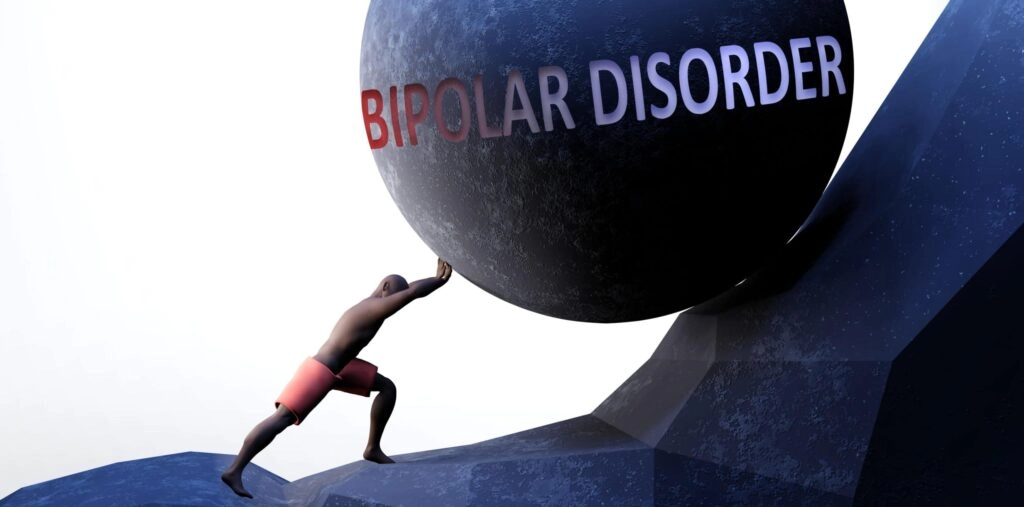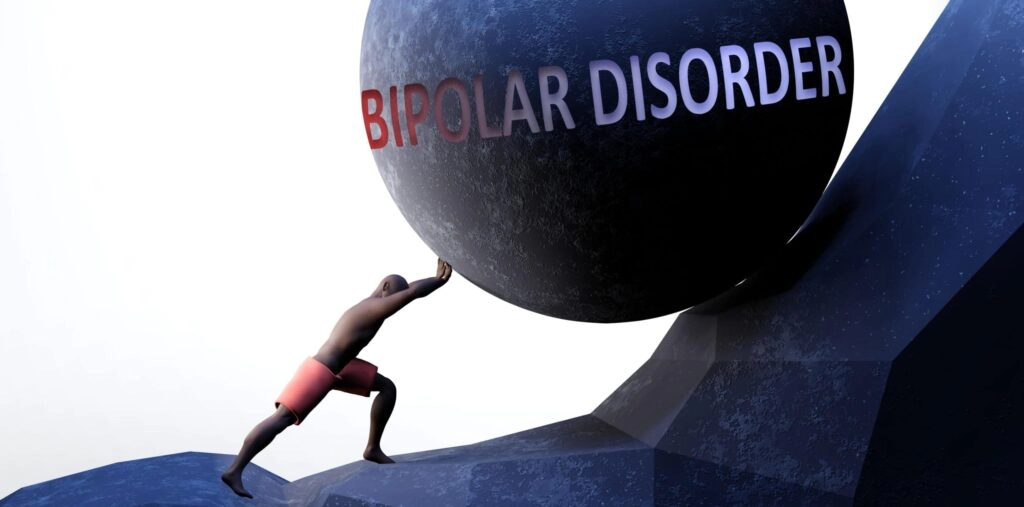Chances of Getting Disability for Bipolar Disorder: A lot of those who suffer from bipolar disorder have trouble performing their everyday tasks. It can be challenging to maintain a job due to the changing symptoms, which can cause significant functional issues and interpersonal relationship issues. It can be difficult to manage bipolar disorder, even with adequate care.

You may think about submitting a claim for long-term disability insurance if your bipolar disorder symptoms prevent you from working anymore. However, there may be queries about whether bipolar disorder is regarded as a disability. How likely are you to be granted disability benefits for bipolar disorder? What is the procedure for obtaining disability benefits for bipolar illness? Before submitting your long-term disability claim for bipolar disorder, you should be aware of the following.
Knowing What Makes Your Symptoms Unique
The insurance provider will want to know about your bipolar disorder symptoms while you are submitting your long-term disability claim. They need to comprehend how your symptoms are impairing your ability to function in your professional life. Keep in mind that bipolar disorder manifests in a variety of ways. Every individual will have a unique cycling pattern, which might alter suddenly.
Because bipolar illness is a unique condition that manifests differently in different individuals, it is not fair to generalize. The insurance provider needs to know how your bipolar illness impacts your daily activities in order to properly assess your long-term disability claim.
How is Bipolar Disorder Diagnosed?
For your long-term disability claim for bipolar disorder, the insurance provider will need proof of your diagnosis.
The first step towards receiving the right diagnosis is to speak with a physician. Your doctor may perform laboratory tests, an interview, and a physical examination.
A blood test or brain scan cannot diagnose bipolar disorder, but they can help rule out other potential causes, such as a stroke or brain tumor. Your doctor may do a mental health assessment if your symptoms are not brought on by any other ailments. Additionally, your doctor can refer you to a qualified mental health professional, like a psychiatrist, who specializes in the diagnosis and treatment of bipolar illness.
You should anticipate a thorough diagnostic assessment from your physician or other mental health professional. To guarantee that your bipolar illness is not misdiagnosed as a major depressive disorder, a thorough and comprehensive history of symptoms is necessary.
Furthermore, your doctor or therapist will probably ask about any family history of bipolar illness or other mental health problems. Your doctor or mental health expert may also speak with your immediate family members or spouse to learn more about your symptoms and family medical history.
Bipolar Disorder Varieties
Additionally, the insurance provider may ask about the kind of Bipolar Disorder that you have. According to health professionals, there are four categories of bipolar disorder:
Bipolar Affective Disorder 1
This form is identified when you experience at least one manic episode, which may be preceded or followed by a severe depressive or hypomanic episode. Full-fledged mania is experienced by those with Bipolar 1. Symptoms may include excessive chatter, racing thoughts, insomnia, high energy, hallucinations, and delusions.
Bipolar Affective Disorder 2
A diagnosis of Bipolar 2 may be made if you have at least one depressive episode and one hypomanic episode, sometimes known as “Swinging Bipolar.” Those with bipolar 2, in contrast to those with bipolar 1, are not known to experience psychotic episodes. However, they are also susceptible to severe depression.
Cyclothymic Disorder
At least two years of alternating hypomania/mania and depression periods, but not to a significant degree, are indicative of cyclothymic disorder. Sometimes, your depressive and manic episodes might alternate back and forth, but they won’t be severe enough to qualify as major depression. Sometimes, people with Cyclothymic Disorder have difficulty functioning.
Bipolar Affective Disorder – NOS (Not Otherwise Specified)
When you exhibit some characteristics of bipolar disorder, but none of which can be categorized as one of the three other types, you are diagnosed with bipolar affective disorder – NOS.
Any age can be affected by bipolar disorder, which affects both men and women. However, the majority of individuals experience the first signs in their twenties. About 85% of those with bipolar disorder have a family history of depression.
How Can I Demonstrate That I Have a Bipolar Disorder Disability?

You can get ideas from here, but you must explain how each of your symptoms interferes with your ability to carry out your job responsibilities in order to improve your chances of keeping your claim accepted.
Creating a Personal Narrative
Since the symptoms of bipolar disorder can vary from person to person, you should describe to your insurance company how your specific symptoms keep you from doing your job. Creating a thorough, written account for the insurance provider will allow you to accomplish this.
Your Doctor(s) Medical Records
Your insurance provider will probably also seek the advice of your treating physicians while assessing if your bipolar disorder is impairing. The assistance of your doctor is essential. Reports from your doctor should concentrate on:
- The frequency and intensity of your symptoms;
- Positive findings from any mental status exam;
- They are able to watch you closely throughout your visits to their office.
- The exact rules and restrictions that prohibit you from working.
Psychological and Neurological Assessment
Videos from Pexels and Videezy / Music from Bensound
You could think about having a Neuropsychological Evaluation done in addition to your personal story and encouraging reports from your treating physicians. A neuropsychological evaluation will assess your cognitive impairments.
Neuropsychological testing objectively and scientifically assesses how your disability is affecting your memory, learning perception, problem-solving abilities, processing speed, verbal skills, executive functioning, and other aspects of your life.
In conclusion
A severe illness that can lead to impairment is bipolar disorder. Your likelihood of acceptance will rise if you know how to back up your assertion. To have your bipolar disorder long term disability claim authorized, you must demonstrate that you have received adequate treatment and provide sufficient medical evidence to support your claim.
Our New York long term disability attorneys can assist you if you have any of the symptoms listed above or if you have bipolar disorder but have previously been denied disability insurance coverage.







